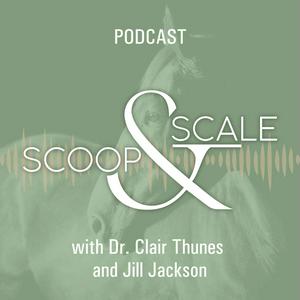Ep. 61: Winter Horse Blanketing: Should You Do It? What the Science Says
Blanket season is here and so are the annual blanketing opinion wars! From “my horse never wears one” to “my pony has a full winter wardrobe,” every horse owner has an opinion. But what does the science actually say about blanketing horses?In this episode of The Scoop & Scale Podcast, we are joined by Dr. Michelle DeBoer from Equine, PhD to uncover the facts behind horse blanketing, coat growth, and thermoregulation.Dr. DeBoer’s research reveals surprising truths about how horses handle cold, when blanketing truly helps, and why no one-size-fits-all rule exists. You’ll learn:What really triggers a horse’s winter coat to growHow breed, body condition, and climate affect coat thicknessWhether blanketing can actually prevent coat growthWhy wind and rain matter more than temperature aloneHow blanketing impacts hay intake and weight managementWhen blankets help… and when they might hurtTune in to get practical guidance to help you make smarter blanketing decisions this winter.https://www.sciencedirect.com/science/article/pii/S0168159116302192 Reference: “Horses can learn to use symbols to communicate their preferences,” Applied Animal Behaviour Science, November 2016 Do you have questions about feeding your horse? Contact us at
[email protected] Thanks for riding along with us!



